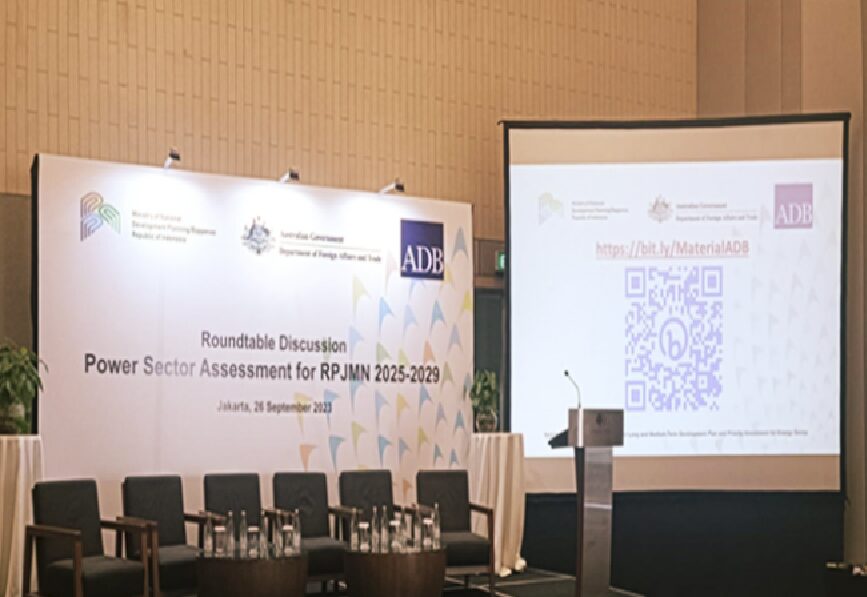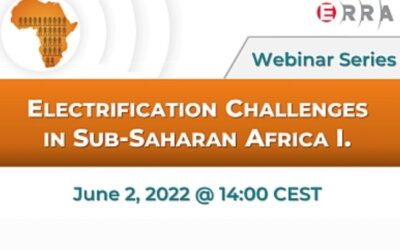ECA NEWS
Review and implementation new rate designs for Jamaica (2024-2029)
ECA are delighted to be working with the Office of Utilities Regulation (OUR) in Kingston, Jamaica for the review and implementation of new rate designs for the next regulatory period (2024-2029). OUR, established in 1995 by the Office Utilities Regulation Act,...
Welcome to ECA
We are excited to welcome Sahajleen Kaur to ECA in May 2024. Previously an Economic Analyst at Gemserv's Low Carbon Business Unit, she worked on decarbonisation initiatives in the UK's heat and buildings sector, including district energy solutions and domestic fire...
State of the market report for healthcare facility electrification
Excited about what lies ahead in healthcare electrification? Keen to find sustainable solutions for powering health facilities worldwide? Dive into the 'State of the Market for Health Facility Electrification' report by Sustainable Energy for All (SEforALL), prepared...
ECA looking back at 2023 and forward to 2024…
At the end of a tumultuous 2022 for energy markets, 2023 was, in comparison, something of a calm after the storm. Energy prices declined from their 2022 peaks more quickly than many forecast relieving some of the political pressures (and dangers) of rushed market...
Focus group discussion on power sector elements of Indonesia’s next medium-term development plan
On 26 September 2023, ECA led the Focus Group Discussion in Jakarta that presented initial thinking on the power sector elements of Indonesia’s next medium-term development plan (RPJMN 2025-29). ECA, together with Castlerock Asia and Neyen, is developing a White Paper...
Welcome to the team
In April and May we were pleased to welcome Thalia Goode and Guanfei Li to ECA in London. In her previous role at Hydro Tasmania, Australia, Thalia focused on developing medium and long-term price forecast models of the Australian energy market using PLEXOS modelling...
Biggest change in network regulation in a decade
Ofgem is considering the biggest change in network regulation in a decade. On 10 March 2023, Ofgem published a consultation on frameworks for future systems and network regulation in which it considers new ways to regulate energy networks. This represents the most...
We read Ofgem’s RIIO-ED2 Final Determinations so you don’t need to
The UK was one of the earlier adopters of the independent regulation of utilities. Over time price controls in the UK, as in many other jurisdictions, have become increasingly complex. This makes it ever more challenging to get a clear view across the whole of a price...
Best wishes and a brief look back to ECA’s 2022
As the year draws to an end, we want to wish all of our clients, associates and friends a joyous festive season and a successful start to 2023. 2022 was an exciting year for ECA. We were delighted to go back to a normal working mode meeting clients, holding workshops...
Another regulatory puzzle: Treatment of working capital and construction work-in-progress
Following our 2021 Insight on inflation of the Regulatory Asset Base (RAB) and Weighted Average Cost of Capital (WACC), in this Insight we shed light on the treatment of working capital and work-in-progress, which are seemingly esoteric issues that can have a...
How are European governments responding to tight energy markets – an overview
In the first of our ECA Insight – deep dive series, Iro Sala and Frederik Beelitz look at policy responses to the unprecedented energy price spikes in Europe. We consider both, market re-design proposals and support mechanisms, to provide an overview of different...
Energy Exemplar’s Energy Modelling & Simulation Summit – Xcelerate2022
Energy Exemplar's Energy Modelling & Simulation Summit - Xcelerate2022 - was an excellent opportunity to meet fellow Plexos users and Energy Exemplar’s team and discuss the challenges facing the energy sector now and into the future and how modelling advancements...
Energy Exemplar’s Energy Modelling & Simulation Summit – Xcelerate2022
Energy Exemplar's Energy Modelling & Simulation Summit - Xcelerate2022 - was an excellent opportunity to meet fellow Plexos users and Energy Exemplar’s team and discuss the challenges facing the energy sector now and into the future and how modelling advancements...
Can markets work at net zero?
In ECA’s recent Insight, Robert Barnett looks at market designs being proposed to cover the case where increased penetration of near-zero variable cost generation from renewables and nuclear leads to a collapse in prices to zero at times. This insight considers what...
Exploring decarbonisation incentive options for electricity network firms
ECA has been contracted by the European Bank for Reconstruction and Development (EBRD) to scope, recommend and help implement appropriate performance-based incentives (PBIs) for electricity network firms in North Macedonia. Work will cover "traditional" PBI areas such...
The ECA Summer week is back!
Finally! For the first time in 3 years, we were able to restart our tradition of the ‘ECA Summer week’. It's a week whenl ECA colleagues from around the world get together in London for fun, games, the occasional tipple and interesting discussions. Last week we...
Electrification challenges in Sub-Saharan Africa
Peter Robinson recently acted as Webinar Moderator for a panel discussion on 'Electrification Challenges in Sub-Saharan Africa', the first in a series of webinars hosted by ERRA. This first webinar discussed the status quo and ways forward for the fundamental...
All smiles for the new look London office
We took the opportunity to have a complete office makeover whilst our staff had to work from home. Our refurbishment includes bright new meeting rooms, pristine desk spaces, a large break-out space, shiny new kitchen, and an energy efficient heat pump system. A sleek...
A new addition to the team
This month we are pleased to welcome Ben Gregory to ECA. He graduated in BA(Hons) Politics, Philosophy and Economics from the University of Oxford in 2020, then went on to complete a master’s degree in MSc Environmental Economics and Climate Change at the London...
ECA verifying electricity industry delivery of financial targets in Indonesia
ECA will be responsible for verifying triggers for loan disbursements have been met as an independent auditor, after being appointed by the Asian Development Bank, as part of a team led by SMEC, to be the independent verification agent on financial matters for a...
Regulatory support in Malaysia’s second gas facilities price review
We are pleased to announce ECA has been contracted by Malaysia’s Energy Commission, Suruhanjaya Tenaga, to assist and facilitate the second gas regulatory period (2023-2025) and assess the first gas regulatory period (2020-2022) which determine the allowed tariff for...




















